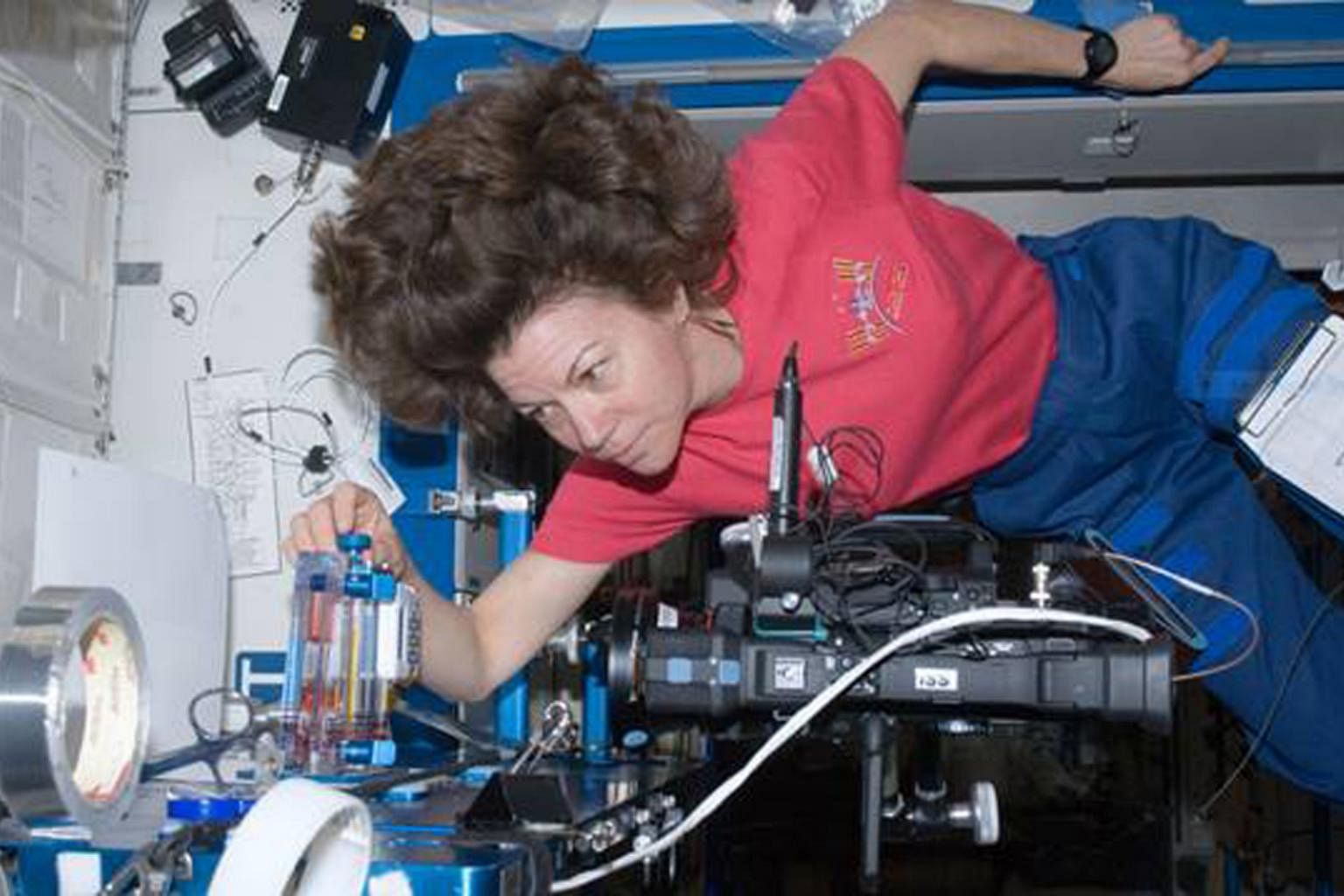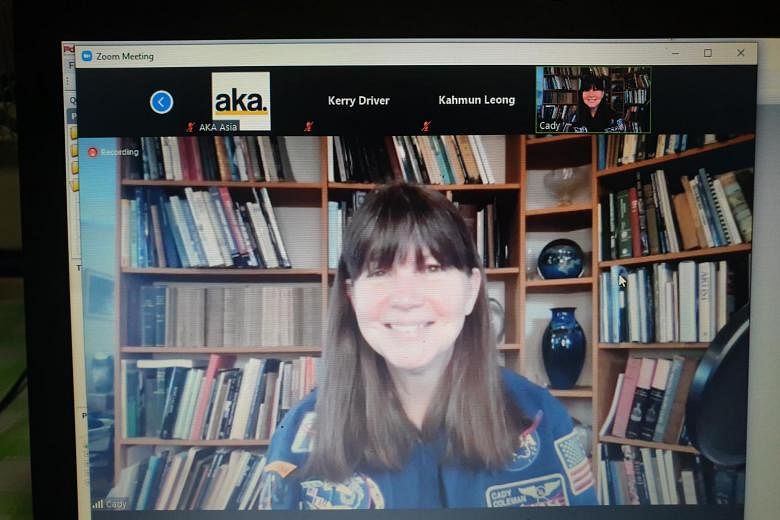SINGAPORE - When it comes to space exploration, children in Singapore should feel free to reach for the stars, according to retired American astronaut Catherine "Cady" Coleman.
After all, there are more job and educational opportunities in the space industry than before. Besides the United States' National Aeronautics and Space Administration (Nasa), there are many new commercial space companies and even schoolchildren can help design projects involving small satellites these days, says the former US air force colonel, who worked at Nasa for 24 years before retiring in 2016.
"What does going to space mean? Does it mean a person goes to space or do a person's ideas go? It's infinitely possible for every country to be involved in space exploration and I would say it's necessary," says Dr Coleman, 59, who will be speaking on Facebook Live at 8pm on June 26 in a session titled An Evening With An Astronaut.
"I was speaking with the organisers and saying, what are the chances of someone from Singapore being part of the missions to the moon and the missions to Mars? I think the chances are very, very good. Partly because we are showing people what exploration means and the need to be educated about science and math and technology."
The talk is a collaboration between Science Centre Singapore, US Embassy Singapore and Girls2Pioneers, a programme that encourages girls to take up Stem subjects (science, technology, engineering and mathematics) in their higher education and careers. It is part of a regular series, titled Astronomy 102, by the Science Centre Observatory.
Singapore also offers several advantages when it comes to investigating the universe, says Dr Coleman, who was speaking to The Straits Times via video-conferencing from her home in western Massachusetts in the US. She is married to a glass artist, Mr Josh Simpson, 70, and they have two adult children.
"When we are living on an island in space, (like the space station), we have only the people right around us. But maybe we have other resources from people whom we can talk to. The United States is large enough that not everyone feels that," she says.
Dr Coleman has spent more than 4,330 hours in space on two space shuttle flights in the 1990s and on the International Space Station between 2010 and 2011.
"I spent almost six months on the space station and we were six people in total. When you see pictures of people in a spacecraft, crowded together, those photos were taken on the way up and on the way home. The space station is the size of a soccer field. It's huge."
Being in space is "delightful and delicious", she says. "Because you're flying. It's not just floating. It's about flying, everywhere. It takes just the push of a tiny finger to push you all the way across the space station."
She wanted to stay in space even longer so she could learn more.

"The experiments that we're doing in space, they're actually all about Earth. For example, we're learning how to grow plants to go to Mars, because we need to grow food. A lot of the work that we've done at Nasa has led to progress in vertical farming in cities," she says.
Her most memorable experiment was when she was on the International Space Station in 2010, when she did work on osteoporosis. A woman who is 70 years old and has osteoporosis, loses in one year on Earth what she loses in bone density in a month in space, work that has implications on preserving bone density on Earth.
As a woman in her male-dominated field, she brings something different to the table.
"I think I bring a spirit of collaboration as a leader. To all of us when we're in space, the mission is so important. I can say, 'Listen, you're good at something and I'm not good at that, and I need you to do that and you're too shy about it, you need to ask your questions.'"
This relates to Earth's present crisis.
"I actually think those things are related to the Covid-19 situation that we have now. For us in space, we have to have difficult conversations together. Because if we don't, we do not perform our mission as well."
"Sometimes your role is simply to stay home and be as considerate as you can, in terms of how to not contaminate other people. It makes it easier for people to feel good about their role if they focus on the mission."
Retired American astronaut Catherine "Cady" Coleman will be speaking on Facebook Live at 8pm on June 26 in a session titled An Evening With An Astronaut.


